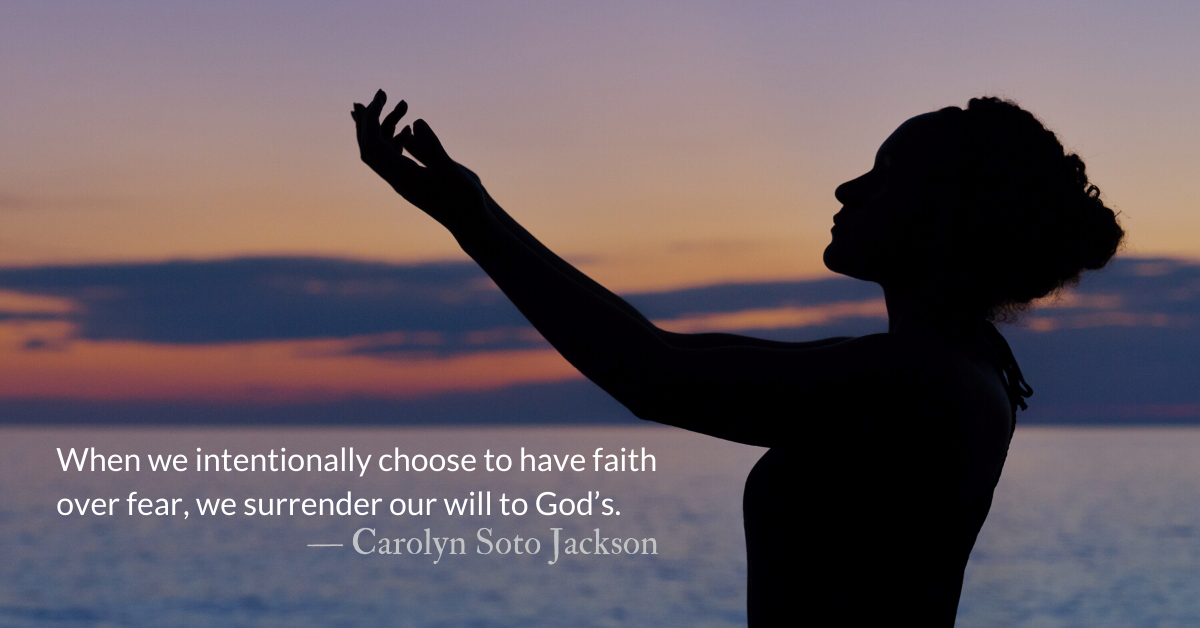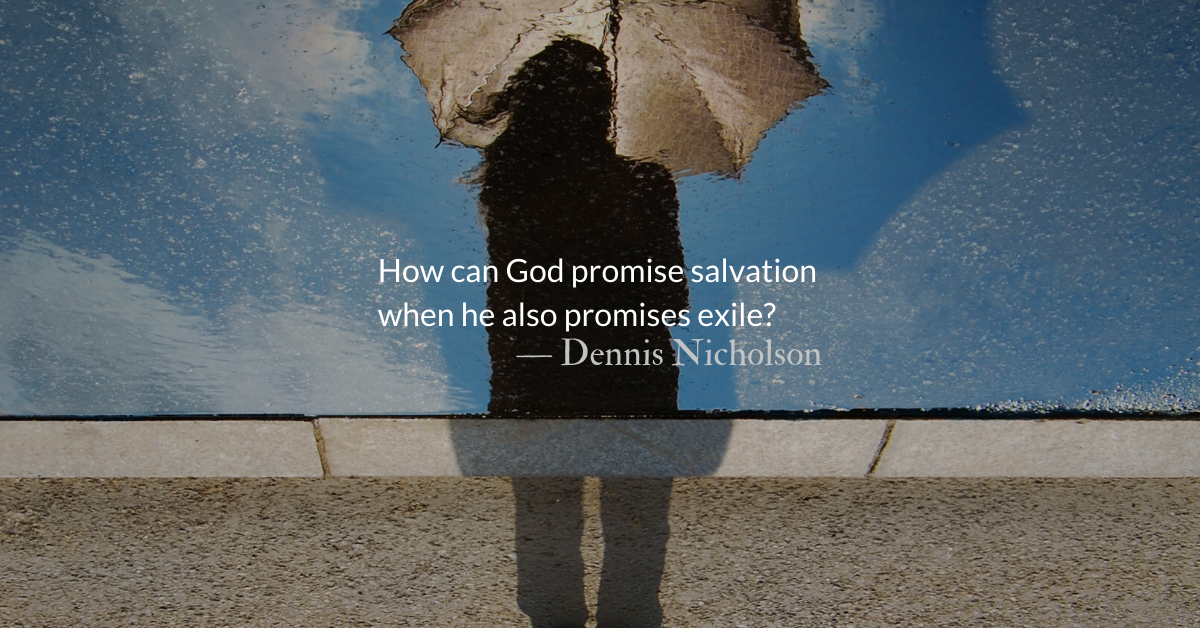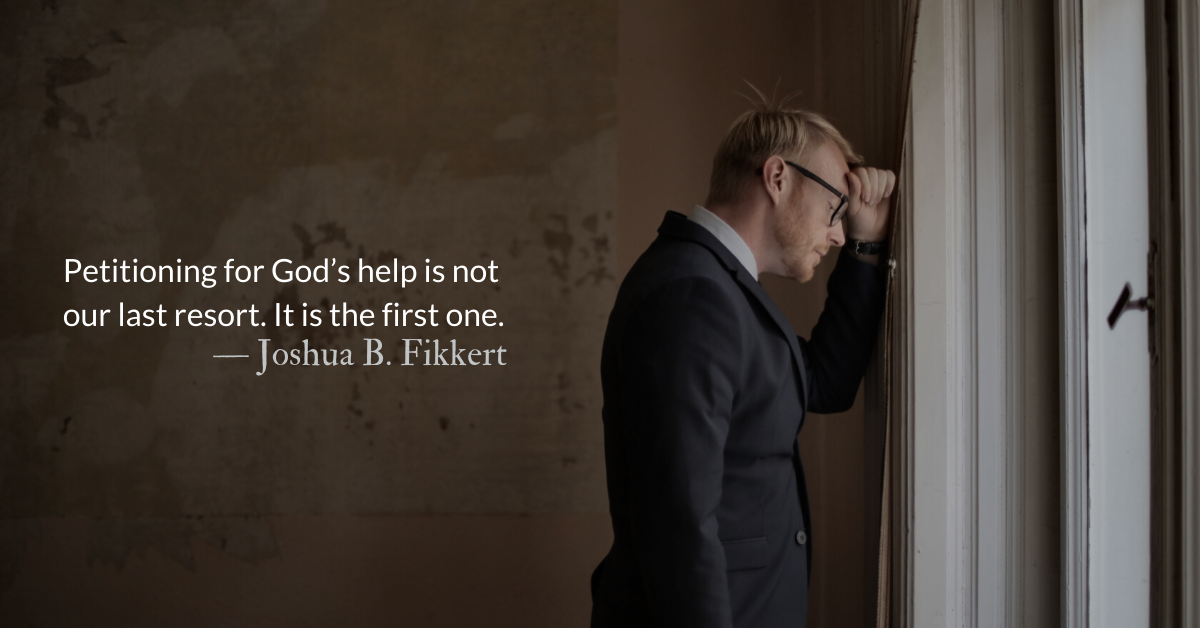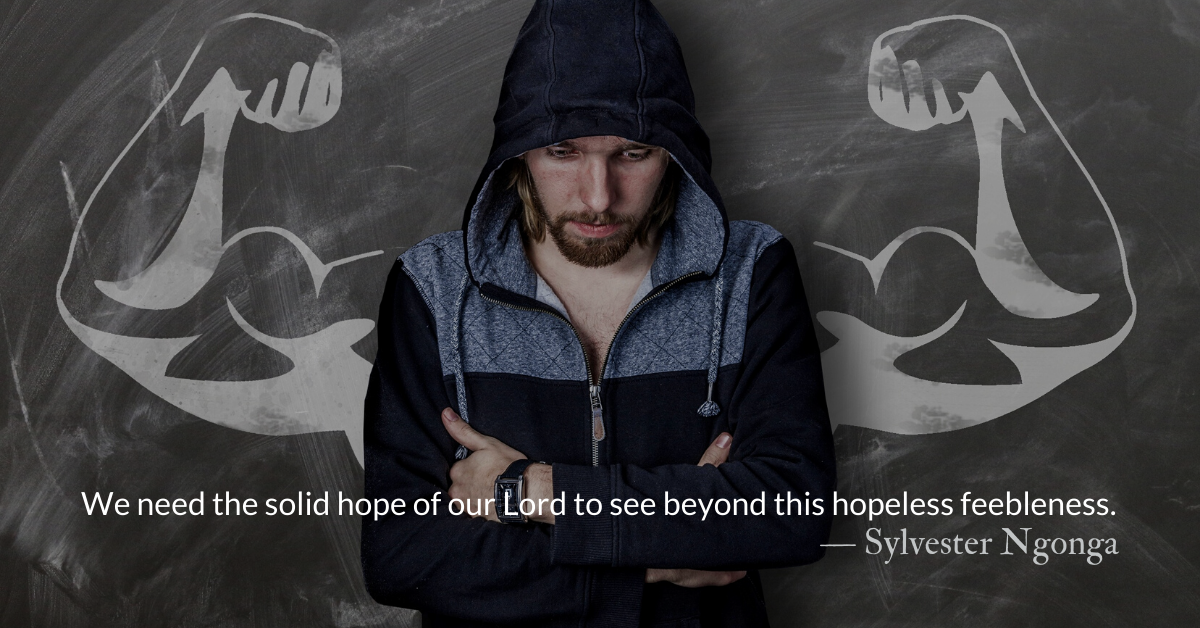We are happy to welcome ministry-focused college and seminary students from around the country to write in June of 2020 for The Park Forum. Each of them is pursuing a career in ministry and received free coaching on their writing as a part of the program. For more information about the program and a profile of each of our student writers, visit our Student Writers Month page.
Today’s student writer is Carolyn Soto Jackson, a student at Truett Seminary.
Scripture Focus: Isaiah 41.10
Fear not, for I am with you;
Be not dismayed, for I am your God.
I will strengthen you,
Yes, I will help you,
I will uphold you with My righteous right hand.
Reflection: Faith Over Fear
By Carolyn Soto Jackson
Over the last few months, we have witnessed fear rear its ugly head in so many different forms with the Covid-19 pandemic. Our neighbors all over the world found themselves scavenging stores with empty shelves because of hysteria.
This disease came out of nowhere killing our family and friends, wreaking havoc all over the world. Businesses shut down, careers were put on hold, and we were ordered to stay home until further notice. What seemed nearly impossible, came to pass. So, why shouldn’t we succumb to fear like many of those in the world?
Because we are believers and we are confident in God’s promises when He commands us to, “Fear not”.
When God repeats Himself, He is trying to get our attention. “Fear not” in Isaiah 41 is not an exception. This famously repeated command in the Bible is written three hundred and sixty-five times and seems imperative in our current situation.
Shortly after the command, two powerful promises come from our Lord. We need not be afraid, first, because He is our God and, second, because He will help us. We are His chosen people and He does not take the lives of His children lightly. Unlike the false idols created by man, God does not topple down when trials and tribulation arise. On the contrary, He rises up!
When we intentionally choose to have faith over fear, we surrender our will to God’s. This heart posture then allows God to be our Provider and Protector. We want to take control of our lives especially when we are stretched thin, because we think we know what is best. This is a façade or illusion.
We do not know because the only One who knows is Our God. In times of distress, we tend to act irrationally out of fear. We act out in our heightened emotions without thinking it all the way though. It takes one innocuous spark of fear to set a wildfire of nefarious behavior.
But, we have a choice. We can choose to freak out or fear not. Our intentional choice to have faith over fear will not only break strongholds but it gives the Lord the Authority to make a way where there seems to be no way.
Fear not child, God is in control.
Divine Hours Prayer: The Refrain for the Morning Lessons
From now onwards all generations will call me blessed, for the Almighty has done great things for me. — Luke 1.48
– Divine Hours prayers from The Divine Hours: Prayers for Summertime by Phyllis Tickle
Today’s Readings
Isaiah 41 (Listen – 5:00)
Revelation 11 (Listen – 3:24)
Read more about Fear in the Boat
Fear is overcome; don’t be afraid. In the world you are frightened. But be comforted; I have conquered the world!
Read more about The Way of Love Amidst Fear
Fear is natural and one shouldn’t be ashamed of being afraid. However, the response of a Christian must be supernatural.











